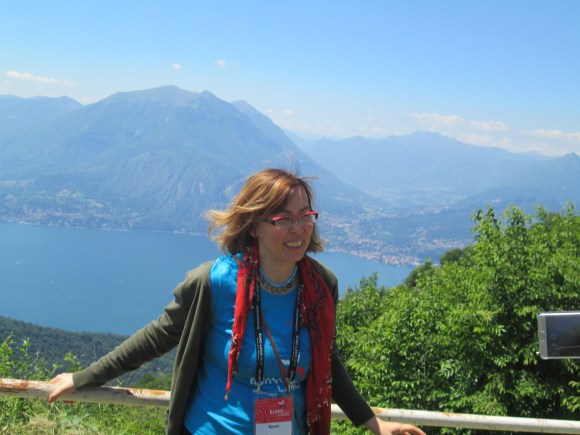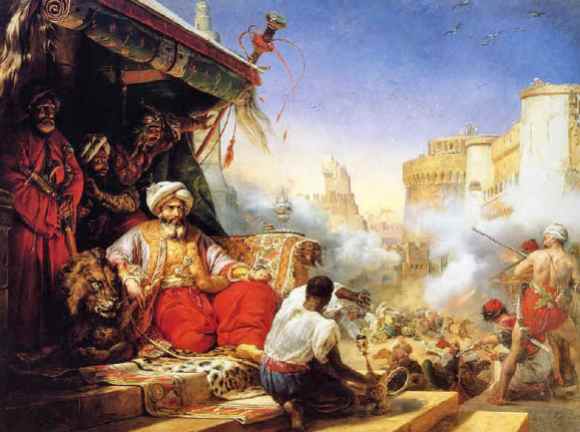
Başak Tosun has been editing the Turkish Wikipedia for over a decade, and she still remembers the feeling she got when she received an email inviting her to contribute.
“The moment I read about [Wikipedia], the idea of writing encyclopedic articles sounded like fun,” Tosun recalls. “But I know myself very well. I hesitated about visiting that website. I knew that once I started, I wouldn’t be able to stop writing.”
Tosun successfully held out for a few months but eventually decided to take the plunge. Editing Wikipedia started as a simple hobby, writing articles about her favorite anime characters, before it became more when she decided to channel her efforts into filling content gaps on the Turkish Wikipedia.
“Many artists, writers and scientists were missing on Wikipedia, or not being fairly or adequately represented on the internet,” says Tosun. “I felt empowered knowing I could do something about it.”

One of the 1,100 articles created by Tosun was on Ibn Taghribirdi, a historian from fifteenth century Egypt. He lived with Cairo’s Mamluk elite (the Turkish ruling class of slave origins). Ibn Taghribirdi is known for his analytic style in documenting the Mamluk rulers of Egypt and the history of Egypt during the middle ages.
Overall, Tosun has a passion for editing history and biographies and has invested much time in developing articles about the history of Turkey, women in art, musician and dancer profiles, and more. This interest has bled over into her professional life as well: “When I started editing history, I recognized that my general knowledge of it was lacking,” she said. “So I started a four-year degree program in history at an open university that I’m completing this year.”
Tosun doesn’t have a utopian view of the Wikipedia community. Mistakes occur, she notes, but assuming good faith makes them tolerable. Even editing conflicts can result in collaboration on developing a topic. “Sometimes there are conflicts on the ethnic origins of people in the biographies I write,” Tosun explains. “Most of the time, the person in question is of mixed origins, and therefore all sides of the conflict have merit. In such cases, I usually try to add as much detailed information and references as I can to support all views.”
Tosun enjoys sharing her experience with others and showing them how to contribute. According to her, “It’s always easy to start contributing to Wikipedia as long as the new user recognizes the edit button.” Based on that, she suggested that her sister, a psychology professor, assign her students editing tasks on Wikipedia as part of their syllabus. Tosun offered to help train the students on how to edit Wikipedia.
The plan worked and the next semester, another professor joined the efforts with 102 students. “Most students do not continue contributing extensively, but at least they become better readers of Wikipedia,” Tosun explains. Together with the Turkish Wikipedia community, Tosun is now helping with several Wikipedia courses in different universities.
When not on Wikipedia, Tosun works for a web hosting and domain registration company. She studied political science before going for a second degree in history.
One of her wishes for 2017, is to help organize an editathon (editing workshop) at the Poetry Library in the city where she lives, where the participants would focus on editing Turkish poet profiles.
Interview by Syed Muzammiluddin, Wikimedia Community Volunteer
Profile by Samir Elsharbaty, Digital Content Intern, Wikimedia Foundation

Can you help us translate this article?
In order for this article to reach as many people as possible we would like your help. Can you translate this article to get the message out?
Start translation